
Bringing down the House: Yes Minister
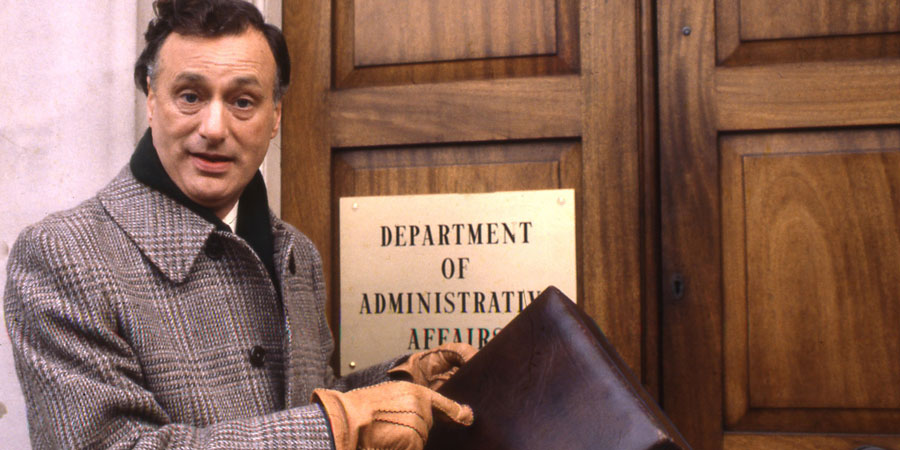
Sir Humphrey: He has his own car, a nice house in London, a place in the country, endless publicity and a pension for life. What more does he want?
Bernard: I think he wants to govern Britain.
Sir Humphrey: Well, stop him, Bernard! Stop him!
On 25th February 1980, with the new decade barely fifty days old, a new politician stumbled awkwardly onto the national stage. His name was Hacker: James Hacker. Previously an opposition MP, Hacker now found himself promoted to the position of Minister of Administrative Affairs following his party's victory in the General Election.
Over the course of the next few years - as Yes Minister delivered 21 episodes across three series - viewers would get plenty of opportunity to track Hacker's progress (or lack of it) in this position.
Then, against all expectations, he rose to the very top, securing his position in 10 Downing Street at the end of 1984's Christmas special, Party Games. Thereafter, Hacker and his colleagues returned in two eight-part series of Yes, Prime Minister, which aired across 1986 and 1988.
Collectively, both Yes Minister and its sequel (unless clearly stated, we will use Yes Minister throughout this article to refer to both titles) are now widely regarded as amongst the very best situation comedies ever produced. The show was popular at the time and has remained so in the years since. Praise has rightly been heaped on both the high quality of writing and the performances, particularly those by the three lead actors.
Hacker was played by Paul Eddington, at that point best known for playing the hen-pecked Jerry Leadbetter, long-suffering husband of the formidable Margo (Penelope Keith) in Larbey & Esmonde's much-loved sitcom, The Good Life (1975-78). Keith had found a new sitcom home in the hugely popular To The Manor Born (1979-81). Now it was hoped Eddington would thrive in the new environment of Yes Minister.
Antony Jay and Jonathan Lynn, creators of the new series, hastily renamed their creation, to avoid any confusion with Eddington's Good Life character: Gerry Hacker disappeared from the scripts and James Hacker (usually known as 'Jim' or more formally as 'Minister') was born.
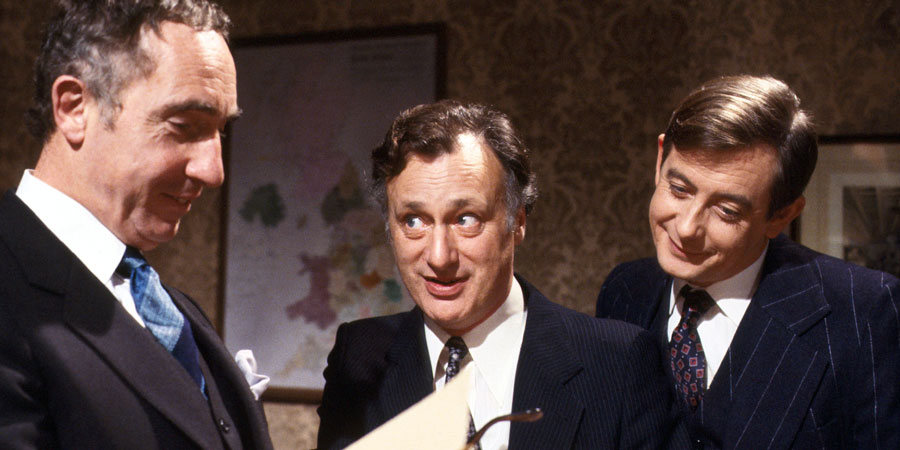
Despite an excellent supporting cast, on screen, Yes Minister was essentially always a three man show.
Eddington's minister is essentially a typical politician. He is not evil or greedy and seems to have gone into politics with the best intentions some years before. Even by the time he has become a minister, he is still basically well-meaning and wants to make his mark by making a positive difference to the world. On the other hand, he is not totally naïve. He has been round the House a few times and - even before he meets the sitcom's second key character, top civil servant Sir Humphrey - he is no stranger to political posturing, compromise and deception.
He is also not without flaws: like any one of us, Hacker can be vain and self-centred. His speeches sometimes demonstrate an occasional attempt to emulate Churchill. He also has a weakness for alcohol, demonstrated most graphically in the 1982 Yes Minister episode, The Moral Dimension in which he arranges for a special "control room" to be organised to ensure a constant supply of alcohol is provided during a ministerial visit to a "dry" Arab state.
Like all politicians, Hacker is also ambitious. At one point, Sir Humphrey questions why he is so obsessed with climbing Disraeli's famous greasy pole to power:
"The greasy pole is important!" Hacker answers. "I have to climb it... Because it's there!" Later on, in the same episode, he attempts to justify some other dubious behaviour. "I have a clear conscience," he argues. "My hands are clean!"
Sir Humphrey immediately rounds on him: "Well, I should have thought it was frightfully difficult to keep one's hands clean while climbing the greasy pole!"
Is it possible to keep one's hands clean while climbing the greasy pole? In some ways, this is just what Yes Minister is all about.
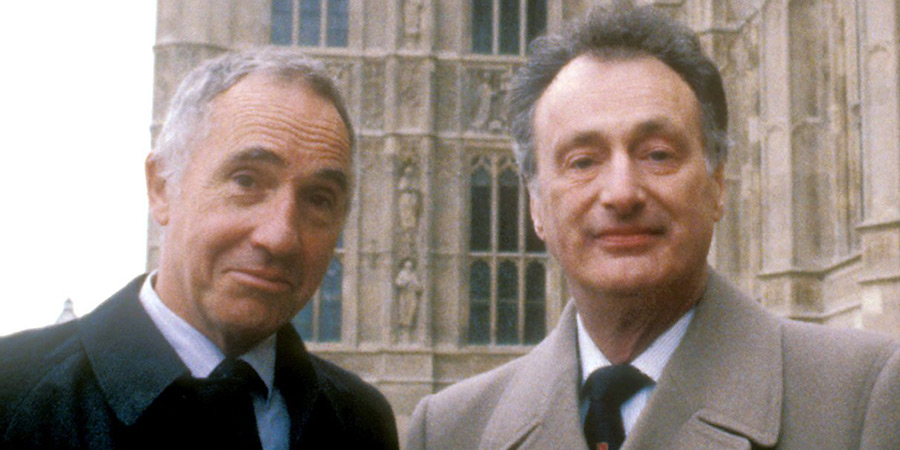
Another way to view the series is as one long power struggle between two men: Jim Hacker and Sir Humphrey Appleby. Despite Paul Eddington getting both the title role and top billing in both iterations, it is Nigel Hawthorne's portrayal of Sir Humphrey that tends to be remembered more than anything else. Indeed, the name "Sir Humphrey" has since found a permanent place in the nation's political lexicon as a shorthand description of a certain breed of Whitehall civil servant. Little wonder Eddington initially wanted the role of Sir Humphrey for himself, until he was gently persuaded he would be better suited to that of Hacker.
When we first meet Humphrey in the show's pilot episode, he is the Permanent Secretary to the Department of Administrative Affairs. In theory, he is there to ensure continuity. Ministers and governments may come and go, but experienced civil servants like him are there to ensure the wheels of state keep on turning throughout these changes. They are completely politically neutral, serving only to help implement the legislative programme of the democratically elected government of the day, whatever its political complexion may be. As Humphrey himself puts it: "I am neither pro nor anti anything. I am merely a humble vessel into which ministers pour the fruits of their deliberations."
This, at least, is the theory. In practice, Hacker soon realises Humphrey will use any weapon at his disposal to prevent Hacker from doing anything which might upset the status quo. Sir Humphrey maintains a privileged, well-paid and powerful position and has a vested interest in keeping things as they are. His agenda is thus fundamentally at odds with Hacker's. Hacker wants to implement changes and make his mark as a minister. Sir Humphrey's aim is to prevent him from changing anything and essentially make sure he is kept too busy to do anything until the next man or woman comes along to fill the post.
In this, Hacker's experience compares to that of many real-life politicians. Ministers as diverse in political outlook as Tony Benn and Michael Gove have often complained about civil servants effectively blocking their attempts to achieve anything meaningful during their time in office.
Without wishing to spoil too many storylines, a typical episode might see Hacker pledging himself to fulfil his government's commitment to 'open government' but ultimately ending up doing the exact opposite by needing to cover something up to save his own skin after Sir Humphrey's behind-the scenes shenanigans have landed the minister in trouble.
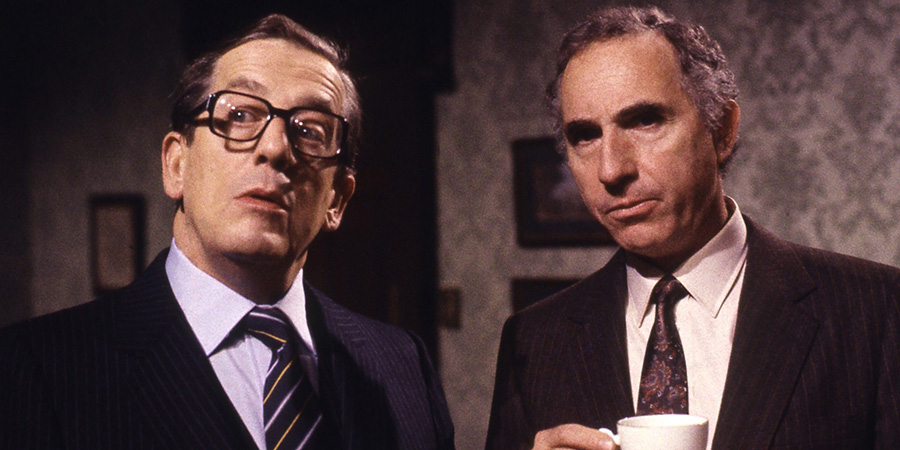
Sir Humphrey is more experienced than Hacker and knows how government works better than he does. He knows all the right people, notably Cabinet Secretary and drinking companion Sir Arnold (John Nettleton). In due course, Arnold retires and is able to secure a position for his friend as his successor, ensuring that by the time of Yes, Prime Minister, Sir Humphrey is able to remain by Hacker's side as he moves into Downing Street.
Sir Humphrey has numerous tricks up his sleeve, notably an ingenious ability to avoid answering any difficult question directly, typically using one hundred words to obscure the fact he is not really saying anything at all. For example, this mass of clichés and idioms:
"Minister, if I am pressed for a straight answer I shall say that, as far as we can see, looking at it by and large, taking one thing with another, in terms of the average of departments, then in the last analysis it is probably true to say that, at the end of the day, you would find, in general terms that, not to put too fine a point on it, there really was not very much in it one way or the other... As far as one can see, at this stage."
Yes Minister became famous for long, dense pieces of rhetoric like this. Hawthorne, in particular, received much acclaim for delivering such verbose lines. The actor developed a variety of memory techniques to assist him, but he was equally adept at delivering shorter quips: "The ship of state is the only ship which leaks from the top", Sir Humphrey observed once. On another occasion, a useful collaboration led hm to conclude that "it takes two to quango".
His wit sometimes extended to the written word too. While reading a report, Hacker once scrawled a frank criticism in the margin: "ROUND OBJECTS!"
Sir Humphrey's response appeared underneath, soon afterwards: "Who is Round and why does he object?"
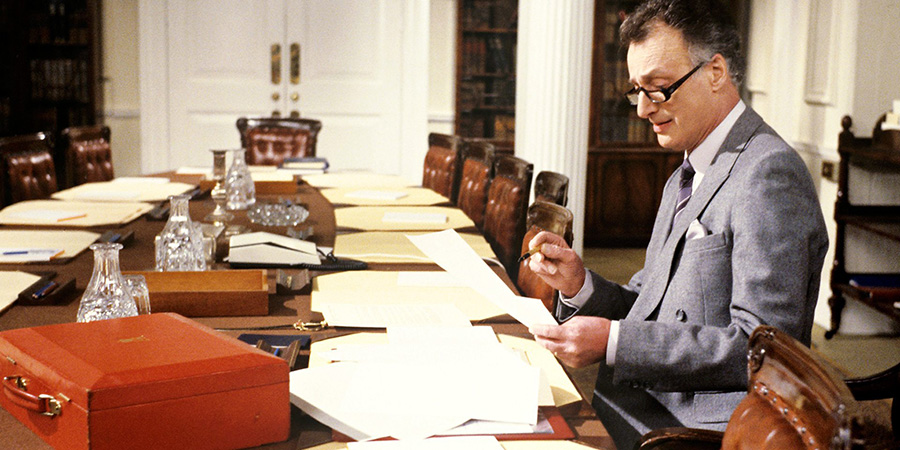
However, it should be noted that Sir Humphrey doesn't always win. Hacker proves to be a canny political operator and grows more ruthless and cynical as the series wears on. Sometimes he defeats Sir Humphrey outright, perhaps as a result of one of the civil servant's rare blunders; for example, an indiscreet radio interview, or the revelation of some hitherto classified cock-up from his earlier career. On other occasions, the two even work together, conspiring on a scheme to save the department from abolition; and working to prevent Hacker from being replaced by another far less palatable minister.
In short, like the short-tempered, class-obsessed Basil Fawlty, the borderline criminal Del Boy or the lecherous bigot Rigsby, Sir Humphrey belongs to the long list of great sitcom characters who come across much better on screen than they do on the page. Sir Humphrey is corrupt, snobby, manipulative and self-serving. Yet, thanks to Nigel Hawthorne's winning performance, he never really feels like a villain and we are usually quite happy to see him win.
The third part of Yes Minister's ruling triumvirate is filled by Jim Hacker's Principal Private Secretary, Sir Bernard Woolley. Played by one-time Basil Brush co-star Derek Fowlds, he is a more likeable and amiable character than either Hacker or Sir Humphrey.
Bernard, who is more junior than Humphrey, often finds himself torn between a genuine desire to serve his minster loyally and the need to secure his ongoing civil service career by assisting Humphrey in his Machiavellian schemes.
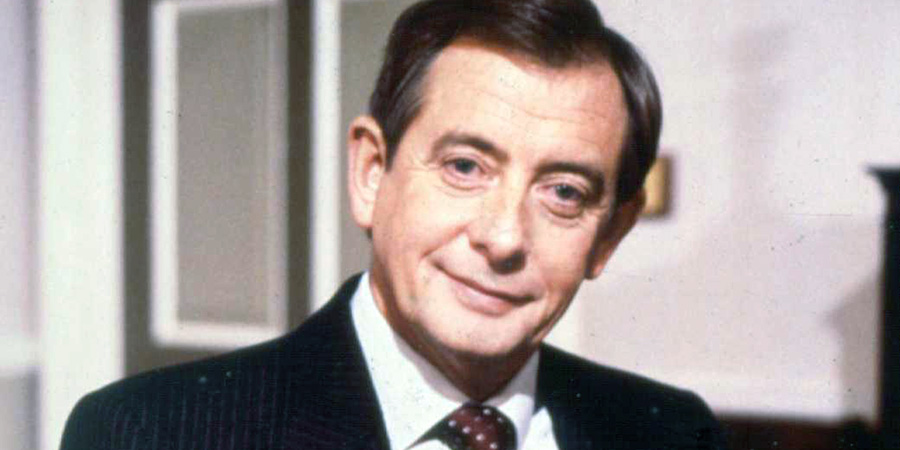
As a side note, Bernard's pedantic tendency to point out the logical flaws in many of the other characters' bursts of rhetoric (for example, "you can't stab someone in the back while spitting in their face") lead to some of the very funniest moments in the entire series.
In the first series of Yes Minister, a fourth figure was also present, that of Hacker's political adviser, Frank Weisel (a name deliberately mispronounced as "Weasel" by Bernard and Humphrey) played by Neil Fitzwiliam. Essentially a relic from the days of Hacker's pre-ministerial political career, Weisel soon finds himself isolated and irrelevant once his man has been promoted. Humphrey and Jim effectively buy him out at the very end of Series 1.
Special adviser Dorothy Wainwright (Deborah Norton) gave more input to Hacker during Yes, Prime Minister. A reasonable and sensible character, Sir Humphrey naturally distrusts her, referring to "that Wainwright female" behind her back and patronisingly referring to her as "dear lady" to her face. She is rightly sceptical about Sir Humphrey's motives.
Reflecting the political landscape of the era, Wainwright is one of only a fairly small number of female roles allocated through the series. Hacker's wife, Annie (Diana Hoddinott), appears infrequently, while their daughter, Lucy (Gerry Cowper), appears in just one episode. Gwen Taylor and Brenda Blethyn both appear as MPs who clash with Humphrey, while a character played by Eleanor Bron becomes embroiled in a Hacker scheme to correct the gross gender imbalance in both the department and wider civil service.
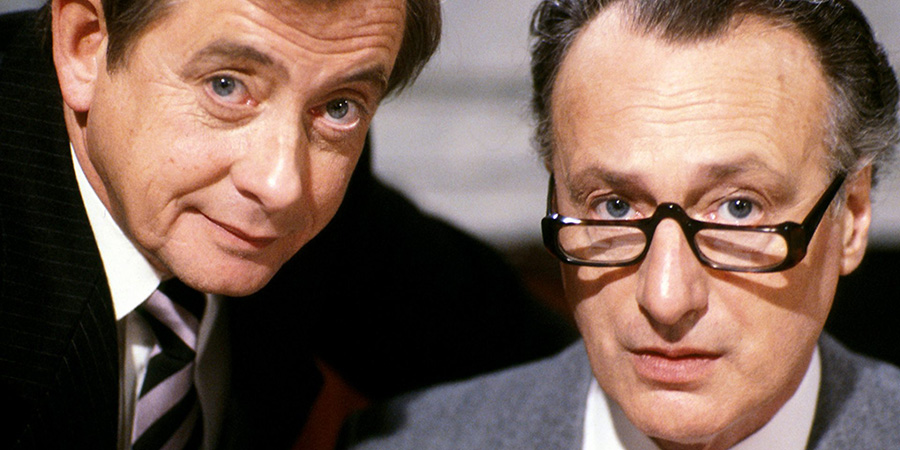
As the sitcom steadily grew more popular and successful, a whole host of popular character actors queued up to appear, including Richard Vernon, John Barron, Graeme Garden, Ian Lavender, John Bird and John Fortune.
One brilliant move agreed up early on by writers Antony Jay and Jonathan Lynn was to ensure the show was always entirely non-party political. Neither Jim Hacker nor anyone else is ever identified by a recognisable party allegiance. Indeed, during Yes Minister, the leader of Hacker's party (i.e. his boss, the Prime Minister) is never seen or identified at all. This has helped the series in a number of ways.
Firstly, although some aspects of the show have inevitably dated, it has not aged in the way even much more recent topical comedies have done. The first series was dreamed up during the Labour Callaghan Government (1976 - 1979), but with the exception of the pilot, every episode was recorded under the Conservative administration of Margaret Thatcher. And today the show still resonates so deeply in no small part because it deals with issues more enduring than the day-to-day events of the time.
Were Hacker to be either a Labour or Tory man, the whole show might risk looking like an extended attack on whichever party he belonged to. This could potentially alienate half the electorate accordingly. As Derek Fowlds observed at the time: "Both political sides believe that it satirises their opponents, and civil servants love it because it depicts them as being more powerful than either. And of course, they [all] love it because it's all so authentic."
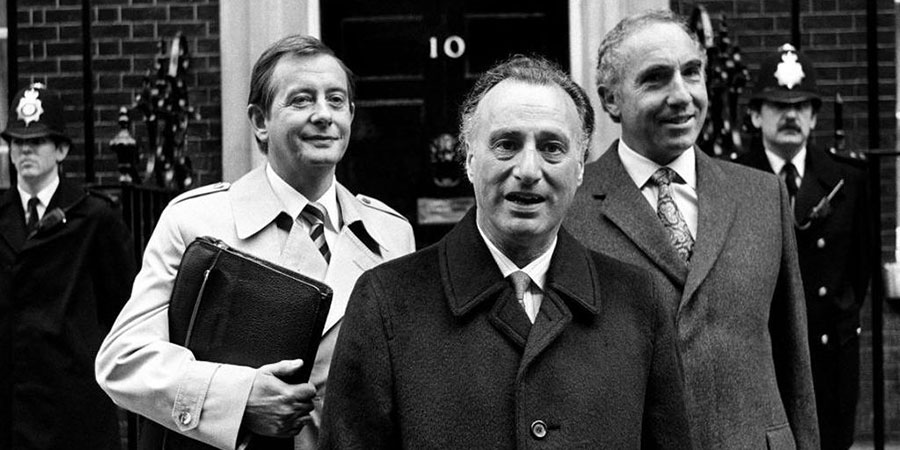
In practice, Antony Jay was an enthusiastic Conservative while Jonathan Lynn was more left-wing. Although often remarked upon for having no discernible sense of humour at all, then Prime Minister Margaret Thatcher was a big fan of the series, allowing Eddington to be filmed walking into the real 10 Downing Street to add authenticity to a scene in which Hacker dropped in on his own fictional PM for a chat, and even appearing alongside an uncomfortable Hawthorne and Eddington in a curious live sketch.
Occasionally however, actual political reality did intrude. Watch closely and you'll see clear references to events like the 1982 Falklands conflict and contemporary politicians such as Roy Jenkins and Tony Benn. Another episode features a character clearly inspired by Ken Livingstone, then the controversial leader of the now abolished Greater London Council.
It is sometimes said that all political careers end in failure. Thankfully, the same rule does not apply to sitcoms. When the second and final series of Yes, Prime Minister concluded in January 1988, it undeniably did so on a high.
The show was both popular and critically acclaimed. Nigel Hawthorne had received four BAFTAs for his role. For all his success on the stage, his performance as Sir Humphrey may still be the greatest performance of his entire career. The comedy was undeniably a career high for Paul Eddington too, and it soon became clear there was probably not going to be another series. Paul Eddington was, by now, experiencing serious health problems and both writers seemed ready to call it a day anyway.
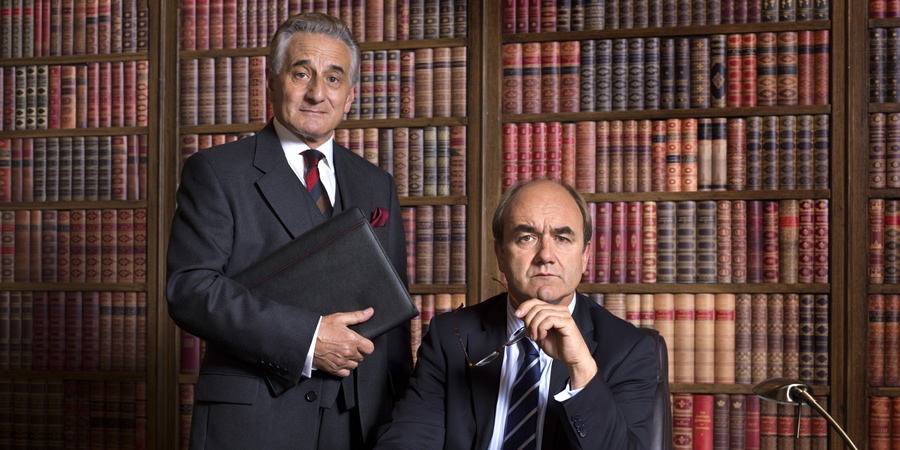
In 2010, long after both Eddington and Hawthorne had died, Jay and Lynn revived Yes, Prime Minister for the stage. This led to several new TV episodes being produced, broadcast on Gold in 2013. David Haig, Henry Goodman and Chris Larkin took the three main roles, the former two reprising their roles from the play, but these new episodes did not come close to achieving the same levels of success as the original. And again, since the death of Jay in 2016, Lynn has now penned a "final chapter" to Jim and Humphrey's story: I'm Sorry, Prime Minister, I Can't Quite Remember is now (autumn 2023) playing a short tour.
On the face of it, much has changed since the talented trio of Eddington, Hawthorne and Fowlds first starred in Yes Minister on television. To name just three things: Parliament is now televised, devolution has occurred and Britain has left the European Union. But the essential dynamics that govern the series - an elected government locked in an eternal struggle with the civil service - remain as relevant as ever, and the show still provides a textbook example of a perfectly written, beautifully acted situation comedy.
As both humble minister and Prime Minister, Jim Hacker always shuddered at the prospect of making any sort of political decision that Sir Humphrey had described as "courageous". Don't be like him: if you've never watched Yes Minister or Yes, Prime Minister before, take a courageous decision of your own and start watching them all from the start today. You won't regret it.
Where to start?

Series 2, Episode 2 - Doing The Honours
With Bernard's help, Hacker hits upon a seemingly perfect scheme to finally make the civil service fully accountable. But can he find a way to get it past Humphrey?
In an episode that gives both Paul Eddington and Nigel Hawthorne full rein to allow their characters to use every weapon in their armoury to get what they want, this is the perfect taster for any new viewer to get a feel for the wonderful world of politics and scheming in Yes Minister.
Help us publish more great content by becoming a BCG Supporter. You'll be backing our mission to champion, celebrate and promote British comedy in all its forms: past, present and future.
We understand times are tough, but if you believe in the power of laughter we'd be honoured to have you join us. Advertising doesn't cover our costs, so every single donation matters and is put to good use. Thank you.
Love comedy? Find out moreThe Complete Yes Minister & Yes Prime Minister

This complete collection includes every episode of the hugely popular political satire Yes Minister Series 1 - 3 (which first aired in 1980 on BBC 2), along with each episode in the subsequent two series of Yes, Prime Minister (which aired from 1986).
Meet the bewildered Rt Hon James Hacker, his scheming and equivocating Permanent Secretary, Sir Humphrey Appleby and of course, Bernard, the piggy-in-the middle, on their fraught journey through the corridors of power.
Easily the sharpest political comedy ever written, with clandestine help from real civil servants, and satire that bites so close to home it sometimes seems more like a documentary. This does the impossible: it makes politics not just fun but hilariously funny.
First released: Saturday 14th October 2006
- Distributor: 2 Entertain
- Region: 2
- Discs: 7
- Subtitles: English
- Catalogue: BBCDVD2113
![]() Buy and sell old and new items
Buy and sell old and new items
Search for this product on eBay
BCG may earn commission on sales generated through the links above.
- Distributor: 2 Entertain
- Region: All
- Discs: 7
- Subtitles: English
- Catalogue: BBCDVD2113
![]() Buy and sell old and new items
Buy and sell old and new items
Search for this product on eBay
BCG may earn commission on sales generated through the links above.
The Yes Minister Miscellany

Yes Minister is one of the most popular and critically successful British sitcoms of all time, partly due to its fascinatingly accurate observations of the eternal sparring between Paul Eddington as naïve senior minister, Jim Hacker, and Nigel Hawthorne as infernally cunning Permanent Secretary, Sir Humphrey Appleby.
Originally broadcast in three series from 1980 to 1984, Yes Minister won an unprecedented three BAFTA awards in a row, as well as an enduring appeal that has lived far beyond the series or its sequel Yes, Prime Minister. Tracing the careers of Hacker, Sir Humphrey and his loyal sidekick Bernard, this amusing and brilliantly illustrated book will appeal to everyone who remembers the series with affection and can't resist watching the repeats.
Containing obituaries of the three leading characters, written specially by Sir Anthony Jay, and the sketch written by Bernard Ingham for Margaret Thatcher to perform with Paul Eddington and Nigel Hawthorne, the book contains many surprises as well as reflections on the series and its importance by politicians and journalists of the day.
First published: Tuesday 20th October 2009
- Publisher: Biteback
- Catalogue: 9781849540100
![]() Buy and sell old and new items
Buy and sell old and new items
Search for this product on eBay
BCG may earn commission on sales generated through the links above.
- Publisher: Biteback
- Catalogue: 9781849540100
![]() Buy and sell old and new items
Buy and sell old and new items
Search for this product on eBay
BCG may earn commission on sales generated through the links above.
A Very Courageous Decision: The Inside Story Of Yes Minister

The behind-the-scenes story of one of the most successful and admired sitcoms of the 1980s.
In 1977 the BBC commissioned a new satirical sitcom set in Whitehall. Production of its first series was stalled, however, by the death throes of Jim Callaghan's Labour government and the 'Winter of Discontent'; Auntie being unwilling to broadcast such an overtly political comedy until after the general election of 1979.
That Yes Minister should have been delayed by the very events that helped bring Margaret Thatcher to power is, perhaps, fitting. Over three series from 1980 - and two more as Yes, Prime Minister until 1988 - the show mercilessly lampooned the vanity, self-interest and incompetence of our so-called public servants, making its hapless minister Jim Hacker and his scheming Permanent Secretary Sir Humphrey two of the most memorable characters British comedy has ever produced. The new prime minister professed it her favourite television programme - a 'textbook' on the State in inaction - and millions of British viewers agreed.
In the years since, Yes Minister has become a national treasure: Sir Humphrey's slippery circumlocutions have entered the lexicon, regularly quoted by political commentators, and the series' cynical vision of government seems as credible now as it did thirty years ago.
Much of this success can be credited to its writers, Antony Jay and Jonathan Lynn, who drew on their contacts in Westminster to rework genuine political folly as situation comedy. Storylines that seemed absurd to the public were often rooted in actual events - so much so that they occasionally attracted the scrutiny of Whitehall mandarins.
In A Very Courageous Decision, acclaimed entertainment historian Graham McCann goes in search of the real political fiascos that inspired Yes Minister. Drawing on fresh interviews with cast, crew, politicians and admirers, he reveals how a subversive satire captured the mood of its time to become one of the most cherished sitcoms of Thatcher's Britain.
First published: Thursday 16th October 2014
- Publisher: Aurum Press
- Download: 10.53mb
BCG may earn commission on sales generated through the links above.
- Publisher: Aurum Press
- Pages: 320
- Catalogue: 9781781311899
![]() Buy and sell old and new items
Buy and sell old and new items
Search for this product on eBay
BCG may earn commission on sales generated through the links above.

